This conversation is part of a series of interviews with various brothers and teachers, including many fellow writers, all of which are part of the body of work surrounding my book-length memoir An Ordinary Disaster—one man's proof that we can all learn to listen to ourselves, and to act upon the inner voice of our self, our sanity and our soul.
In this episode I speak with T Callahan, a fellow writer who focuses on the intersection of people, planet and place. I invited him to have a conversation because of something that he wrote about discipline that really got me thinking, and although we’ve never met, T is a deep thinker, a man that I love and respect, whose presence I admire, and that I continue to want to get to know more deeply, all of which is why I've invited him to be with us here today.
If you’d like to listen to this show in your favorite podcast app, just paste this URL into where it says “add by URL” → https://api.substack.com/feed/podcast/25958.rss — further instructions are here.
Notes for this episode
We met by way of Kyle Thiermann and the “one year no beer” group that he launched July 1 of this year (2022) and that we both joined soon thereafter. The value of being part of a community of shared intention.
Discipline and our orientation towards time. “Everything that has happened will happen and is happening.” The linearity of time is illusory—and also, the appearance of linearity of time is one of the gifts of human consciousness. How discipline “can get a bad rap if we’re inclined to apply it just to the future,” and the value in “recognizing discipline in hindsight,” and that “it might help to think of everything we call discipline as rising from a seed that eventually grows habit.” Perhaps we can recalibrate “discipline” as an accumulation of experience that results from day-to-day decisions, as opposed to a matter of willpower.
Recognizing evidence of having acted with intention over time can help us choose to move forward consciously in a way that feels disciplined.
“Discipline is only difficult until it becomes a habit.” — Colin Hudon
How our obsession with discipline is born of the conceptual—and illusory—split between mind and body. A recasting of discipline can shift from an idea of authoritarian dominance over ourselves to humility with ourselves. Discipline can be a way of taking yourself out of the process of building a habit.
Wanting life to have many chapters, and to be read like a book, not watched like a movie. It’s not possible to be everything all at once, and discipline is one of the tools that allows us to explore the chapters of life. It takes discipline to stop trying. Trying Not To Try, by Edward Slingerland.
There are beginnings and endings in a life of chapters. My recent piece The Last Time, about recognizing and appreciating endings. Discipline is required to begin and end chapters. Zen Mind, Beginner's Mind, by Shunryu Suzuki — and the concept of “right effort.”
The connection between discipline and freedom. Freedom as levity—the lack of weight on your shoulders. Discipline is choosing to steer your ship to a new and different course—and then just to keep that heading.
Changing and healing my relationship with alcohol has not been an ongoing struggle with willpower—it was the result of a realization about how I wanted to live, and that drinking didn’t fit any longer with who I wanted to be. Once that sank in, I was able to steer my ship to a new heading.
We often think that “freedom” is the freedom to choose at any moment—but there’s a greater freedom in not having to choose.
Freedom and safety. We usually think of being safe from things and free to do things. Consider reframing this as safe to explore and express ourselves, and freedom from judgement, pressure, and constraint.
SAFE from & FREEDOM to → SAFE to & FREEDOM from
To recognize that you’re safe and then choose to take risk is the ultimate freedom. There’s a small, fragile, static safety and there’s a much larger, elastic, growing safety. We don’t get safe by doing safe things.
You can reach T Callahan at thelandoft.com and on Twitter at @thelandoft
New here? Please make sure that you’re subscribed—and remember, paying subscribers get buttons!
Dig this? Please share with someone else who will too.
Love reading?
You might enjoy some of my other writing on the subjects of depression, love, men’s work, and identity. Trying Not To Try, by Edward Slingerland. My recent pieces The Last Time and The Man Pays, and Zen Mind, Beginner's Mind, by Shunryu Suzuki.
Please stick around — I’ve got some questions for you…
What is your relationship with discipline? Does the redefinition that T proposes make sense to you?
What is your relationship with alcohol?
How about freedom? Is T’s reframing of SAFE from & FREEDOM to → SAFE to & FREEDOM from interesting to you?
Are you a parent? What was your experience finding your way to becoming—or not becoming a parent?

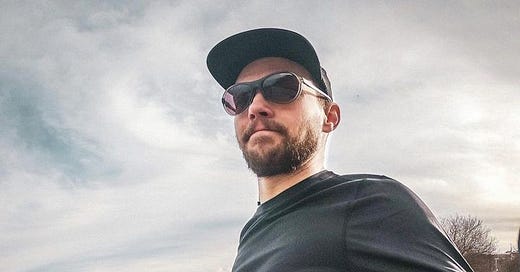
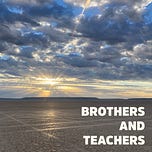


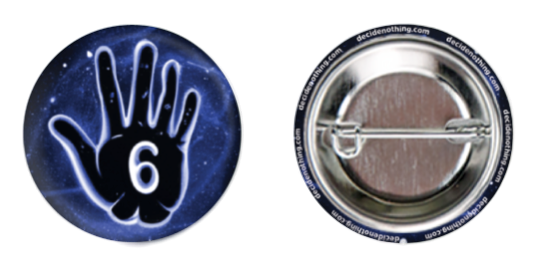

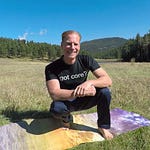




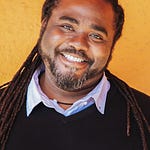
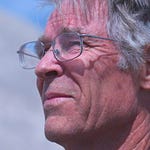
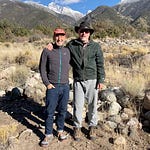
Share this post